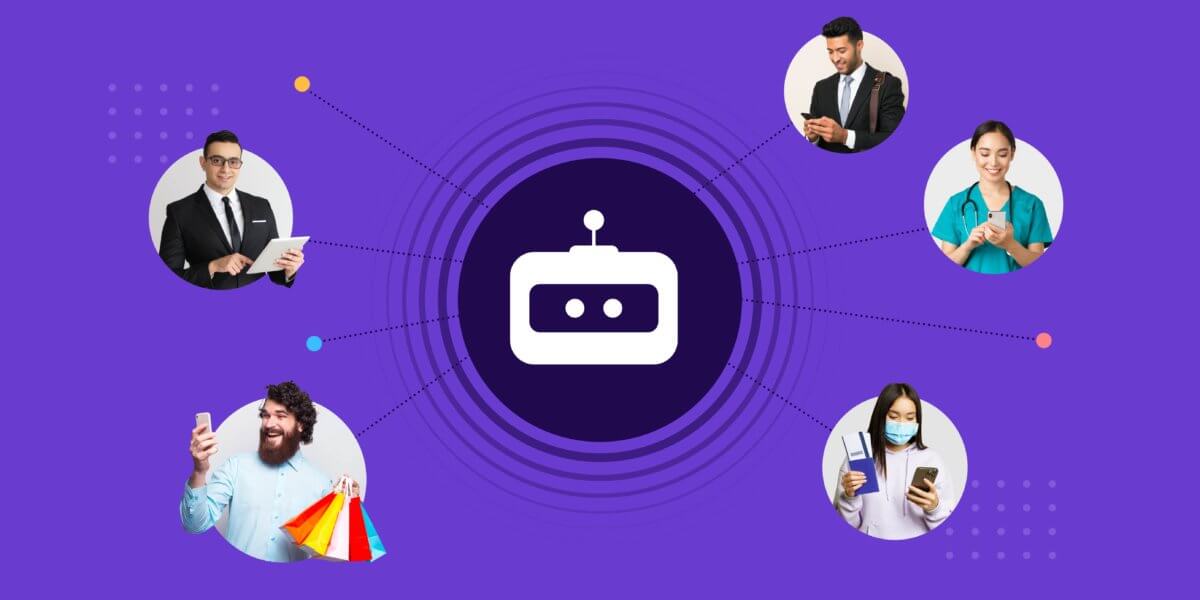6 Ways Automation is Changing the Edtech Industry

6 Ways Automation is Changing the Edtech Industry
Automation in the Edtech industry uses innovative tech to bring in the change that is beneficial to the students, teachers and institutions.
The education industry is one of the most prominent industries that have gone through various changes and adaptation. Automation in Edtech is one of them.
A report by KPMG in collaboration with Google suggests that the Edtech market is expected to provide service to 9.6 million users and consequently will have a market share of US$1.96 billion by 2021.
From the online learning modules to virtual classrooms, technology has played an important role in Edtech. Undoubtedly, this makes it one of the most suited industry for automation and artificial intelligence.
The academic world is turning out to be more accessible and personalised due to AI and automation in Edtech.
Students can now learn at the comfort of their home. Similarly, even those working can learn based on their professional requirements with the help of AI in the education industry.
While multiple trends are going on in the Edtech industry, let us look at the most prominent ones leading to the changing face of the education industry.
Suggested Watching: Customer Support During COVID 19 – An Edtech Webinar
Trends in the Edtech industry
In 2020, COVID-19 established some of the finest and most acceptable Edtech industry trends. However, many were already in motion.
The top trends in the Edtech industry that has offered ways for automation to make it useful and efficient are listed below.
- Use of virtual and augmented reality for experimental and experiential learning.
- Blockchain technology allows unlimited data storage and also makes transacting data decentralised and transparent.
- The mobile tech offers customised and compressed apps to students to learn anytime and anywhere.
- Innovative video-based learning for better conceptualisation, knowledge imparting and helping students retain information better.
- Using tools and technologies to develop properly segmented courses for people of all age groups.
- Artificial Intelligence offers face recognition allowing students to give online exams easily.
- Robotics offers a practical approach to learning and provides flexibility to students with disabilities.
- Personalised and adaptive learning offered by some online courses allows students to track their performance and design course at their own pace irrespective of others.
- Big data allows the schools and institutions to update the courses and content with the latest trends. This ensures the students have the latest information.
- Gamification of education not only develops a student’s interest but also makes it a fun way to learn and remember things quickly and easily.
Automation and AI in the Edtech industry are based on the appropriate use of innovative technological trends to bring in the change that is beneficial to the students. Without doubt, the way automation is impacting the Edtech industry is quite fascinating and compelling.
Ways automation is changing the Edtech industry
In one of its presentations, Forbes suggested that E-learning increases retention rates by 25% to 60%. So, it is not just the k-12 or educational institutions that benefit from automation in the Edtech industry but also the corporations where employees learn new skills.
As seen in other industries, AI in the education industry allows institutions to minimise the cost and time required and offer a better learning experience. Below, we discuss some of the changes.
1. Simplifying the administrative workflow
The administrative workflow is time-consuming and hectic. It can be anything from preparing the list of students and courses to grading and exams. The Edtech industry’s automation allows educators to smoothen the various tasks and offer them more time to impart the knowledge to students.
Additionally, automation in Edtech has also helped make the admission process easier and quicker without any loopholes. Likewise, automation of administrative tasks in customer support has improved customer experience.
2. Smart and reliable content
It is most appropriate to say that automation and education go hand-in-hand. Thus, smart and reliable content designed and developed with AI has allowed the content to reach every classroom setting.
When traditional books are turned into digital automated learning modules, students learn better and have efficient sessions. For example, AI automated learning tools can understand when a student needs to repeat a lesson or move forward.
3. The customised and personalised learning experience
Currently, the curriculum is designed to offer knowledge to the students in general. But the real fact is that the education needs of all the students are different.
AI and automation in the education industry have allowed students to customise and personalise learning sessions. Customising the learning sessions will therefore enable the students to complete the course at their own pace for better understanding.
4. Global learning without limitation
Education has no limits, and there are various concepts that one can learn from around the globe. In truth, AI and automation in Edtech have made it possible for students to learn from the wide range of courses available across the borders, irrespective of their timezone.
Above all, global learning helps open windows for more significant opportunities and allows the students to learn from anywhere, anytime.
5. Better communication and attendance
The automation in Edtech allows teachers to create customised reports and learning progress. The facility to learn from anywhere allows the students to ensure better attendance as well.
Likewise, automation in Edtech also opens up new ways of parent-teacher and student-teacher communication. For instance, institutes can have an omnichannel presence on WhatsApp, website, mobile app to share relevant information on a timely basis.
6. Better efficiencies
AI in Edtech helps the educational institutions offer the most appropriate and data-driven methods to learn and prevents them from getting lost in the pile of books or content.
Offering the most relevant content and global exposure, AI offers the most customised tools for enhancing the overall learning experience. Similarly, with automation, students can improve their learning experience by finding the right information quickly.
The final takeaway
Globe-News Wire suggested that the massive open online course (MOOC) market could be worth $25.33 billion by 2025. Automation in Edtech is one of the key benefits that technological advancements have offered.
Allowing the learning experience to reach far and wide and offering a customised learning experience, AI in Edtech ensures the most effective and efficient knowledge.
By ensuring time management and personalisation, automation in the education industry has guaranteed better learning experiences in the years to come.
Verloop.io offers a product that can automate customer support in the education industry using Conversational AI. To understand what aspects of your Edtech customer support you can automate and how, talk to our team today!





